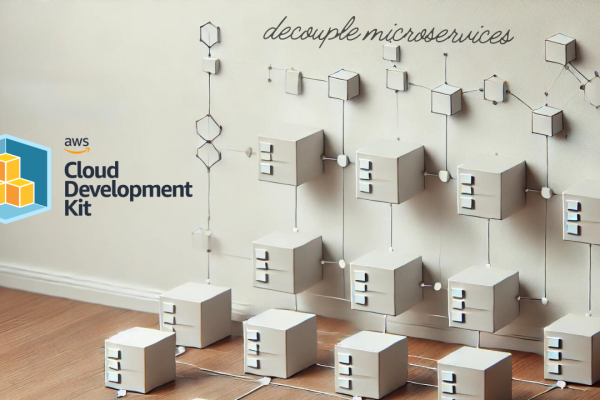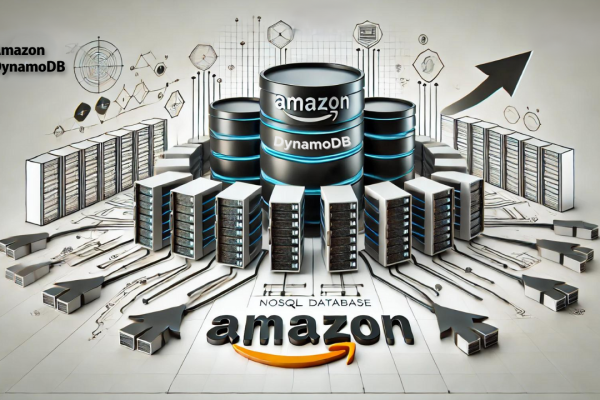Cloud computing has completely transformed how companies operate and grow. According to Gartner’s latest forecast, global end-user spending on public cloud services is expected to grow by 20.4%, reaching a total of $678.8 billion in 2024, up from $563.6 billion in 2023. But which cloud services providers are best for my business? Three leaders in this field—Amazon Web Services (AWS), Microsoft Azure, and Google Cloud Platform (GCP)—offer powerful tools tailored to meet different business needs. This article compares AWS, Azure and GCP, highlighting their unique benefits for different industries, to help you choose the best fit for your business, reducing cost and complexity.
Overview of the leading Cloud Service Providers: AWS vs Azure vs GCP
This section provides a brief glance of the three leading cloud platforms: Amazon Web Services (AWS), Microsoft Azure, and Google Cloud Platform (GCP). We’ll explore the key offerings of each provider, their strengths, and weaknesses to determine which platform best aligns with your organisation’s needs.
Amazon Web Services (AWS)
Amazon Web Services (AWS), established by Amazon in 2006, has become a leader in the cloud computing industry, with a market share of 31%* in Q1 2024. AWS offers a wide range of cloud services, including storage, databases, compute, machine learning, analytics, and so on.
One of the core services is the Elastic Compute Cloud (EC2), which provides scalable compute capacity in the cloud. EC2 allows for on-demand building and launching of virtual machines, with pricing based on usage. Another key service is the Amazon Simple Storage Service (S3), offering scalable object storage for backing up data and archival purposes.
AWS also features the Amazon Relational Database Service (RDS), which supports engines like PostgreSQL, Oracle, MySQL, and Microsoft SQL Server. For developers looking to run code without managing servers, AWS Lambda provides a serverless computing environment. It is also used to handle activity from other AWS services.
Other services that are important parts of AWS from an integration perspective are:
- API Gateway: enables creation, maintenance and management of security of APIs at scale.
- Simple Notification Service (SNS): messaging service that supports the publishing of messages to subscribers via multiple protocols, including HTTP and Lambda. It also enables asynchronous communication.
- Simple Queue Service (SQS): message queueing service that enables the decoupling and scaling of microservices, applications, etc. It can also be used to implement FIFO queues for ensuring messages are distributed in order.
Microsoft Azure
Microsoft Azure, launched by Microsoft in 2010, has evolved into one of the leading cloud computing platforms, with a market share of 25%* in Q1 2024. Azure offers a full suite of cloud services, including storage, computation, networking, analytics, databases, and much more.
One of Azure’s key offerings is Virtual Machines, a service that enables customers to create and deploy virtual computers in the cloud. For storage needs, Azure provides Blob Storage, which delivers scalable object storage for unstructured data. Additionally, Azure SQL Database is a managed service that utilises SQL Server and other database engines.
Azure Functions, another notable feature, is a serverless computing service that allows developers to run code without the need to provision or manage servers. These primary features make Azure a good choice for various cloud computing needs.
Other services that are important parts of Azure from an integration perspective are:
- API Management: API Management employs a facade pattern to conceal the intricate internal logic of backend systems from users, primarily application developers, thereby streamlining their interactions with the API.
- Logic Apps: Azure Logic Apps is a workflow orchestration tool that enables the implementation of business processes. Rather than relying on programming languages to build the logic for these steps from scratch, organisations can opt to use Logic Apps.
- Service Bus: Azure Service Bus facilitates asynchronous communication between applications by allowing them to exchange messages via queues. This ensures that applications can interact with each other even if they are not running at the same time.
- Event Grid: Azure Event Grid provides an alternative to traditional message queue polling for inter-application communication. It supports event-driven architectures by propagating system changes through events.
Google Cloud Platform (GCP)
Google Cloud Platform (GCP), introduced by Google in 2011, has steadily grown into a major player in the cloud computing market, with a market share of 11%* in Q1 2024. GCP offers a comprehensive array of cloud services, including computation, storage, databases, networking, analytics, and more.
One of GCP’s core features is Compute Engine, a service that allows customers to build and deploy virtual machines in the cloud. For data storage, GCP provides Cloud Storage, which offers scalable object storage for unstructured data. Additionally, Cloud SQL is a managed database service supporting both MySQL and PostgreSQL. These key characteristics make GCP a versatile and powerful option for cloud computing needs.

Figure 1: Worldwide market share of leading cloud infrastructure service providers in Q1 2024. Source: Synergy Research Group
AWS vs Azure vs Google Cloud: Which cloud platform should you choose?
With so many cloud computing platforms available, choosing the right platform for a specific use case can be challenging. In this section, we will compare AWS, Azure and Google Cloud (GCP) using the comparison criteria below.
Pricing: AWS vs Azure vs Google Cloud Platform
When choosing a cloud service provider, it’s essential to evaluate both current costs and how pricing scales with business growth to ensure long-term financial sustainability. Amazon Web Services (AWS), Microsoft Azure and Google Cloud Platform (GCP), each offer diverse pricing models such as pay-as-you-go, reserved instances, and spot instances.
| Detail | AWS | Microsoft Azure | Google GCP |
| Minimum Instance | USD 69/month for 2 virtual CPUs, 8 GB RAM | USD 70/month for 2 virtual CPUs, 8 GB RAM | USD 52/month for 2 virtual CPUs, 8 GB RAM |
| Maximum Instance | USD 3.97/hour for 3.84 TB RAM, 128 vCPUs | USD 6.97/hour for 3.89 TB RAM, 128 vCPUs | USD 5.32/hour for 3.75 TB RAM, 160 vCPUs |
| Type of Discount | Reserved Instances (RIs) up to 75% discount | Reserved Instances (RIs) up to 72% discount | Committed Use Discount (CUD) up to 55% |
| Commitment | 1 or 3 years | 1 or 3 years | Committed Use Discount (CUD) 1 or 3 years |
| Cancellation | Available, with options to sell on marketplace | 12% cancellation fee | Not available |
| Payment Options | No up-front, partial up-front, all up-front | All up-front | No up-front |
AWS is renowned for its comprehensive set of services, which offer unmatched flexibility and scalability in the cloud computing industry. While AWS is often considered to have a mid-tier pricing structure compared to its competitors, its broad range of offerings justifies its value for businesses looking for robust functionality and reliable infrastructure support. This makes AWS an ideal choice for businesses looking to leverage advanced technologies and tailored solutions to drive innovation and growth. Azure, on the other hand, has many cost management and billing tools which can help optimise cloud spending, and a free tier which offers a range of services for free for the first 12 months, enabling customers to build prototypes and POCs at no cost. Meanwhile, GCP’s competitive pricing model can be advantageous for startups and applications that prioritise cost efficiency, showcasing the various options available in the cloud services market to effectively meet specific business needs.
Features
When choosing a cloud service provider, businesses must consider the strengths and features of each platform to match their particular needs. This passage compares the leading cloud platforms—Amazon Web Services (AWS), Microsoft Azure, and Google Cloud Platform (GCP)—highlighting their key advantages and ideal use cases.
- AWS offers the most extensive range of features and services, making it a versatile choice for various use cases. It includes everything from basic computing and storage to advanced machine learning and IoT services.
- Microsoft Azure shines in hybrid cloud environments, seamlessly integrating with on-premises Microsoft solutions and offering strong AI and machine learning capabilities.
- GCP stands out with its powerful big data and analytics tools, such as BigQuery, which are ideal for processing and analysing large datasets. Each platform has its own unique strengths, making the selection process dependent on the specific needs of the business.
Performance and scalability
The comparison of AWS vs Azure vs Google Cloud Platform shows that all offer high levels of scalability, reliability and availability.
- AWS has long been the market leader in this space, boasting a vast network of data centres and a wide array of services.
AWS leads the cloud computing industry with a vast global network comprising 25 geographic regions, 81 availability zones, over 200 data centres, and 218+ edge locations. This extensive infrastructure ensures high uptime and fast network speeds, crucial for scalable and reliable cloud services. AWS’s data centres span North America, Europe, Asia, Australia, and South America. This infrastructure enables businesses to deploy resources closer to end-users, minimising latency and optimising performance in a highly competitive cloud computing landscape.
- Microsoft Azure also delivers robust performance, especially excelling in hybrid cloud deployments.
Azure, the second-largest global cloud platform, operates in over 60 regions with a minimum of three availability zones and 116+ edge locations. It offers robust performance and scalability, particularly valued in enterprise sectors due to its integration with Microsoft services. Azure excels in hybrid cloud deployments and boasts an extensive global network of data centres, surpassing AWS and GCP in regional availability. Microsoft continues expanding its data centre presence across North America, Europe, Asia, and Australia, supported by a high-speed, low-latency network backbone.
- GCP is renowned for its performance in big data and analytics, leveraging Google’s expertise in handling large-scale data operations.
Despite being the smallest among AWS, Azure, and Google Cloud, GCP offers robust services and a significant global network with 27 cloud regions, 82 availability zones, and 146 edge locations. GCP ensures competitive uptime and fast network speeds, making it a strong contender for performance and scalability, especially for containerized workloads and data-intensive applications. GCP’s strategically located data centres across multiple continents enable efficient data transfer and low-latency connections, enhancing its appeal for latency-sensitive applications.
The choice of platform can depend on specific performance requirements such as latency, throughput, and global reach.
User Interface
The user interface (UI) and user experience (UX) vary significantly across the platforms.
- One positive point about AWS’s user interface is its user-friendly dashboard. The AWS Management Console provides an intuitive and organised way to manage services, offering easy navigation and quick access to a wide array of tools and features, which helps users efficiently monitor and control their cloud resources.
- Microsoft Azure offers a more user-friendly interface, making it easier for users who are already familiar with Microsoft products.
- GCP provides a modern and streamlined user experience, often praised for its simplicity and ease of use.
The choice of platform might depend on the users’ familiarity with the interface and the ease with which they can manage and deploy services.
Security
Security is a critical consideration for any cloud platform, and all three providers offer robust security measures.
- AWS provides the most comprehensive set of security features and certifications, catering to stringent regulatory requirements.
- Microsoft Azure also offers a strong security infrastructure, integrating well with existing enterprise security systems.
- GCP is recognized for its advanced encryption and secure networking practices, benefiting from Google’s extensive experience in securing its own services.
Businesses must assess the specific security needs and compliance requirements when choosing a cloud provider.
Additional Considerations
Beyond these primary criteria, other factors such as customer support, ecosystem and integrations, geographic availability, and community resources can also influence the decision.
- AWS, with its large customer base, has a vast ecosystem and extensive documentation and community support.
- Microsoft Azure benefits from seamless integration with other Microsoft products and services, offering a cohesive environment for enterprises already using Microsoft solutions.
- GCP leverages Google’s innovation and expertise in AI and machine learning, making it a compelling choice for tech-forward organisations.
AWS vs Microsoft Azure vs Google Cloud Platform (GCP): Strengths of each provider and relevant industries
In this section, we highlight each platform’s unique capabilities and industry focus so that you can understand their strategic advantages in different business sectors.
Amazon Web Services (AWS)
Strengths
Amazon Web Services (AWS) stands out in the cloud computing industry due to its vast range of offerings and scalability. The flagship service, Elastic Compute Cloud (EC2), provides flexible compute capacity, while the diverse storage solutions cater to both on-premises and cloud-based needs. AWS is a leader in AI and machine learning innovation, with advanced capabilities in face, voice, and object recognition. Despite a less personalised approach, AWS’s range of services and cutting-edge tools make it a versatile and powerful choice for businesses seeking robust cloud solutions. Considered the gold standard in cloud reliability and security.
Industries
- E-commerce: the ability to scale resources up and down in accordance with website traffic would make AWS an attractive proposition. Additionally, AWS offers flexible pricing.
- Media and entertainment: AWS provides services that provide a fast, reliable, and globally distributed network for delivering media content. This is crucial for the media and entertainment industry, which requires high-performance delivery of video, audio, and other digital content to a large audience.
- Healthcare: for healthcare, AWS’ security offering is probably beneficial, as well as highly scalable data storage.
Microsoft Azure
Strengths
Microsoft Azure stands out as the only major cloud platform offering a true hybrid cloud model, blending scalability and security effectively. Known for its Virtual Machines service and extensive AI integration, Azure provides a flexible and agile operational environment. Its hybrid cloud advantage is most evident in its storage solutions, which allow for off-site storage of non-essential functions and multiple backup services, including website recovery. Azure supports a high number of SQL databases and seamlessly integrates with both Microsoft products and open-source tools, ensuring safe migration of legacy data. Additionally, Azure’s significant investment in AI and machine learning tools further enhances its offerings, making it a versatile and powerful choice for businesses.
Industries
- Financial Services: Azure provides disaster recovery, security features such as encryption and advanced threat detection for finance companies.
- Government: in the government sector, Azure supports security, data analytics and AI services to help gain insights from data and improve decision-making.
- Education: Azure enhances scalability and flexibility. The platform can utilise AI and machine learning tools can administer automation and supplement personalised learning experiences in the education sector.
Google Cloud Platform (GCP)
Strengths
Google Cloud Platform (GCP) excels with its compute services, notably through Google Compute, which supports both Windows and Linux and allows for customizable or predefined machine types. GCP shines in Kubernetes deployment, leveraging Google’s expertise in this area. In terms of pricing, GCP stands out by making advanced technology accessible within budget constraints, offering innovative and unique services at competitive rates. This combination of flexible compute options and cost-effective pricing makes GCP an attractive choice for businesses looking to integrate cutting-edge technology affordably.
Industries
- Gaming
- Internet of Things
- Research
Conclusion
Picking the right cloud platform is pertinent for adding efficiency to your business operations and staying competitive. AWS leads with a wide range of services and top-notch AI tools, perfect for industries like online retail, entertainment, and healthcare. Microsoft Azure shines with its mix of cloud and on-premises solutions, making it ideal for finance, government, and education sectors. Meanwhile, Google Cloud stands out for its affordable options and advanced computing capabilities, making it a great fit for gaming, IoT, and research fields.
Choose Chakray as your trusted cloud development partner and start your journey to advance your business to thrive in the digital age. Contact us today to discover how we can help you tap into the maximum potential of the cloud!
Contact our team and discover the cutting-edge technologies that will empower your business.

Talk to our experts!
contact us





